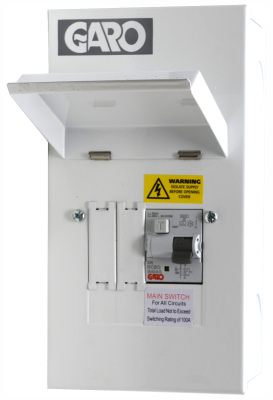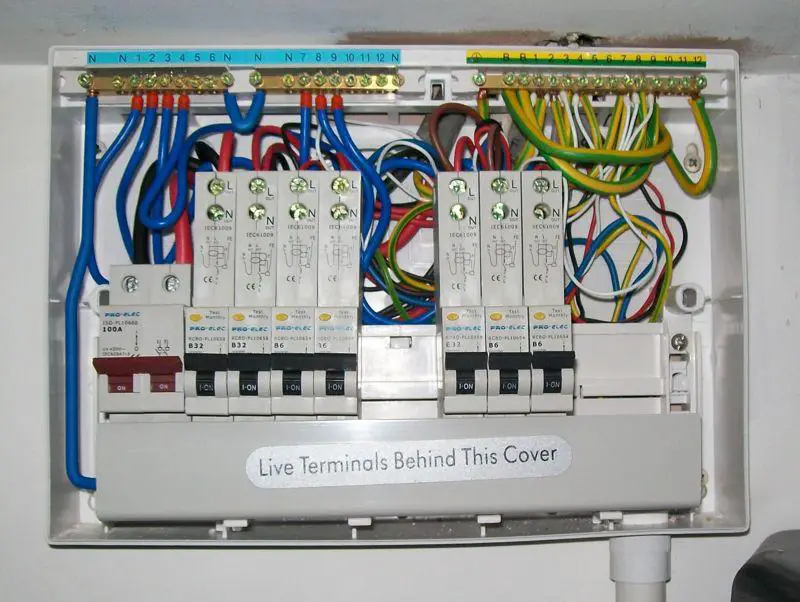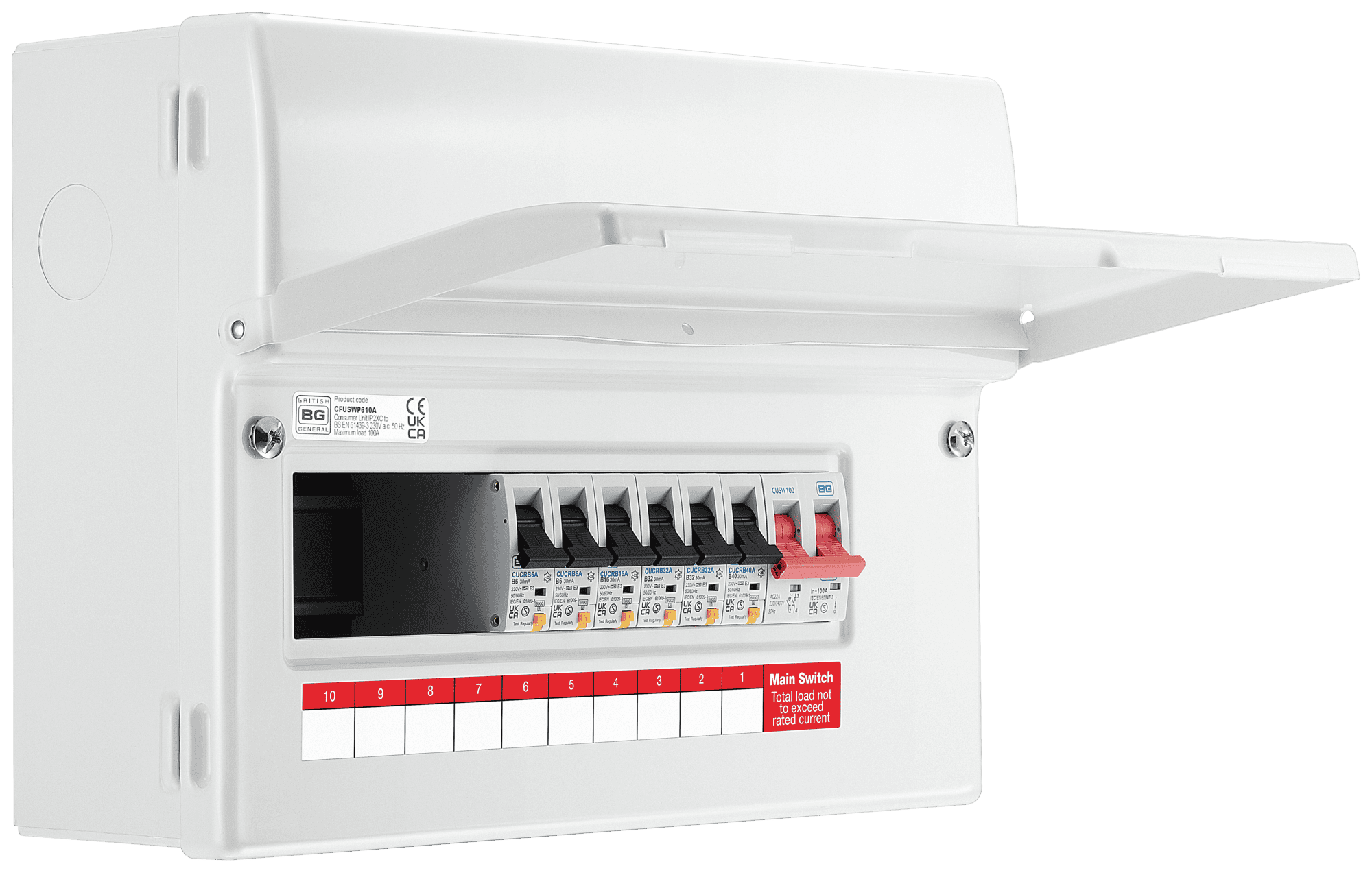Top Functions to Try To Find in High-Quality RCBO CONSUMER UNITS
Top Functions to Try To Find in High-Quality RCBO CONSUMER UNITS
Blog Article
The Duty of Customer Units in Reliable Energy Monitoring Solution
Consumer devices are indispensable to effective energy monitoring systems, working as the primary circulation factors for electric power within structures. By integrating breaker, they guard circuits from prospective overloads, thus preserving security and stopping substantial interruptions. The development of clever modern technologies has further enhanced their performance, enabling real-time information surveillance and nuanced energy consumption analysis. This combination not just maximizes power use but additionally promotes the consolidation of eco-friendly power sources, consequently promoting lasting practices. Exactly how, after that, do these advancements convert to substantial benefits in daily power management?
Comprehending Consumer Units

Comprehending the role of consumer devices starts with recognizing their important function in guarding electric systems. By isolating mistakes within particular circuits, customer systems prevent extensive outages and prospective fire dangers. This isolation is achieved through making use of breaker that trip or merges that blow when a mistake is detected, therefore reducing off the electric circulation to the affected circuit.
In addition, customer devices promote the well organized distribution of power, enhancing the performance of energy use. They allow for the organized management of electrical lots, which can be particularly vital in commercial and industrial settings where need can fluctuate substantially. Correctly maintained customer devices add to the longevity of electrical systems and assist in reducing downtime triggered by electric failures, ultimately sustaining the seamless operation of energy-dependent facilities.
Smart Technologies Assimilation

A key advantage of smart consumer devices is their capacity to utilize advanced algorithms and artificial intelligence for anticipating analytics. This enables preemptive modifications based on usage patterns, weather prediction, and various other variables, significantly enhancing general performance. Wise customer systems promote demand feedback programs, where power use can be dynamically adjusted during top periods to maintain the grid and minimize prices.
The assimilation of sustainable power resources, such as solar and wind, is also streamlined with smart consumer systems. By intelligently handling the intermittency of these sources, these systems guarantee a well balanced and reputable energy supply. In addition, smart customer units enhance customer engagement by supplying comprehensive insights and remote control capabilities through mobile applications, promoting an extra aggressive strategy to energy conservation and sustainability.
Monitoring Power Intake
Building on the capabilities of clever modern technologies integration, keeping an eye on power intake comes to be a critical emphasis learn the facts here now within power monitoring systems. Efficient monitoring serves as the structure for identifying power ineffectiveness and applying rehabilitative steps. By leveraging innovative metering facilities (AMI), real-time information on power use can be gathered at granular degrees, giving valuable understandings into intake patterns and peak need durations. This data-centric method makes it possible for both customers and energy managers to make enlightened choices focused on minimizing waste and enhancing general effectiveness.
Smart meters and Web of Things (IoT) tools play an essential role in this monitoring process. These tools can track power usage in real-time, transmitting data to central systems for evaluation. The collected information is then processed via sophisticated formulas to identify abnormalities, predict future consumption, and recommend optimization strategies. Furthermore, cloud-based remedies supply scalable platforms for saving and assessing big datasets, promoting remote monitoring and control.
The integration of these innovations not only equips customers with thorough details about their energy usage however likewise sustains energy companies in taking care of lots circulation much more efficiently. Eventually, specific and continuous monitoring is essential for accomplishing energy effectiveness, cost financial savings, and sustainability objectives within power administration systems.
Optimizing Home Appliance Use

One efficient technique involves identifying height and off-peak hours to change energy-intensive tasks, such as washing or dishwashing, to times when energy demand is reduced. This not only reduces stress on the grid however likewise takes advantage of lower energy tolls. Additionally, integrating maker discovering algorithms enables for anticipating upkeep, making sure appliances operate at optimal performance and lengthening their life expectancy.
Energy management systems can additionally include user-specific preferences and actions to tailor device usage schedules. Smart illumination systems can adjust illumination based on occupancy and all-natural light accessibility, while HVAC systems can keep convenience degrees without extreme energy usage.
Promoting Sustainability
Promoting sustainability within energy management systems includes not just enhancing performance yet also promoting environmentally liable methods. Customer systems are indispensable to this process, as they offer real-time information and control mechanisms that make it possible for customers to keep track of and lower their power consumption. By leveraging sophisticated modern technologies, customer units can recognize energy-saving chances and facilitate the integration of sustainable power sources like solar and wind power.
One essential aspect of promoting sustainability is informing customers on the benefits of liable power usage. With detailed insights provided by consumer units, users can make enlightened decisions that reduce their carbon footprint. These systems can recommend optimal times for operating high-energy home appliances based on grid need and eco-friendly power accessibility, consequently reducing reliance on fossil fuels.
Additionally, consumer units sustain the fostering of wise grid technologies, which enhance the general effectiveness and dependability of energy distribution. By enabling two-way communication in between customers and utility providers, these systems can dynamically change to energy demands, reducing waste and advertising using sustainable power methods.
Final Thought
Customer systems, as integral elements of power management systems, check my site significantly boost electrical security and performance within structures with circuit protection and smart modern technology integration. In addition, the consolidation of eco-friendly power sources promotes lasting practices, contributing to lowered total energy usage and reduced carbon impacts.
Advancements in wise modern technologies have actually reinvented the capacities of power monitoring systems, specifically through the combination of smart customer systems.Building on the abilities of wise technologies combination, keeping an eye on power intake comes to be a crucial emphasis within energy management systems.Effective home appliance usage optimization is a critical part of power administration systems, aiming to enhance effectiveness and reduce unnecessary power usage.Customer systems, as important parts of power management systems, considerably enhance electric safety and efficiency within buildings via circuit defense and clever technology assimilation. In addition, the consolidation of sustainable power sources promotes sustainable practices, contributing to decreased overall power consumption and reduced carbon impacts.
Report this page